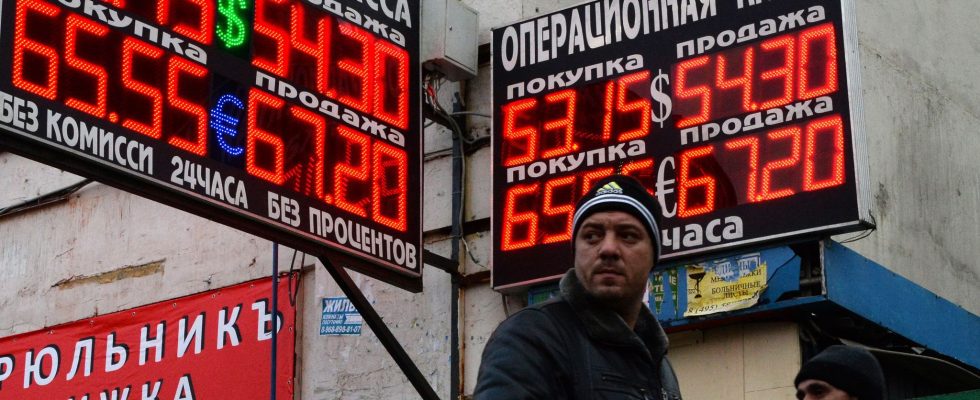The Ukrainian military counter-offensive is stalling but the Western economic offensive is yielding tangible results which have strategic consequences. Evidenced by the fall of the ruble: nearly 30% against the dollar since the beginning of the year. This tumble is a serious problem for the Kremlin and it is indeed a corollary of the sanctions, in particular the $60 cap on Russian oil purchased by the G7 countries, the European Union and Australia.
Here’s how this sanction works in practice: Companies based in countries that apply it are prohibited from providing transportation, trading or insurance services for any Russian oil priced above this price. Russia can circumvent these sanctions by putting a “ghost” fleet of ships on the seas and by developing its own insurance companies, but the cost is high and the country cannot route all its hydrocarbon exports itself. The capping of Russian oil prices has also put the state budget in the red. Tax revenues linked to hydrocarbons have fallen by 40% since the start of 2023. Over the first seven months of the year, its deficit is approaching 2% of GDP, a record for a country that usually has a surplus.
The specter of inflation
The effect of this measure is particularly felt on the rouble. The decline in the value of oil exports and the resistance of imports from China, India or Turkey have caused the country’s trade surplus to fall, which has led to mistrust in the Russian currency.
To stem this slump and attract capital, the Central Bank had to raise its key rates from 8.5% to 12%. This decline in the ruble has a double negative effect, for the economy and for the regime’s propaganda. On the one hand, it risks pushing up inflation and reducing household purchasing power. The narrative according to which the cost of sanctions is higher for Westerners than for Russians will therefore be concretely invalidated in the wallets of citizens. On the other hand, the fall of the rouble, via imported inflation and the increase in interest rates, increases the financial cost of the conflict for the Russians.
Lower quality imports
Paradoxically, the Russian GDP figures show a good performance of economic activity. In the second quarter of 2023, the Rosstat statistical institute announced 4.9% growth over one year. However, this is only a catch-up. Russian GDP has yet to return to its pre-war level, despite the acceleration in arms production.
In addition, this gross growth figure does not take into account the qualitative effects of the sanctions, in particular the fact that industrial products imported from Turkey or India do not necessarily have the same level of quality as those which were imported from Germany. or Austria before the outbreak of war. This point is essential insofar as Russian missiles found by the Ukrainians, of very recent manufacture, seem to show that Russia is obliged to produce weapons, and therefore to import the elements it needs, because it has exhausted its stocks.
A much higher cost of war
The scope of the sanctions is measured in the long term and we must not let ourselves be impressed by the commentators who explain that they are useless or that they throw the country into the arms of China, itself in great economic difficulty in this moment because is not true. The Russian economy has not collapsed, but the sanctions greatly increase the cost of its belligerent strategy. I spend the end of the holidays in the country of Oas, in the northwest of Romania. This small territory was one of the strongholds of anti-fascist and anti-communist resistance.
Today, one can see there an astonishing mixture of respect for ancestral traditions and modernity, via the multiplication of large villas with unbridled architecture. As the crow flies, Ukraine is only ten kilometers away, separated from the European Union by the Oas mountains. The nearest border post, at Halmeu, is 47 kilometers away. It is not difficult to physically feel the absolute need to stop a regime that has made a habit of invading its neighbors.
* Nicolas Bouzou is an economist and essayist
